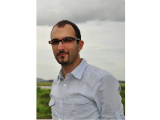Sala 3.1.S.08, Edificio Rey Pastor Planta -1 (sótano), Universidad Carlos III of Madrid, Avda. Universidad 30, 28911 Leganés – Madrid
 Cellular service providers have been struggling with users’ demand since the emergence of mobile Internet. As a result, each generation of cellular network prevailed over its predecessors mainly in terms of connection speed. However, the fifth generation (5G) of cellular network promises to go beyond this trend by revolutionizing the network architecture. Device-to- Device (D2D) communication is one of the revolutionary changes that enables mobile users to communicate directly without traversing a base station. This feature is being actively studied in 3GPP with special focus on public safety as it allows mobiles to operate in adhoc mode. Although under the (partial) control of the network, D2D communications open the door to many other use-cases.
Cellular service providers have been struggling with users’ demand since the emergence of mobile Internet. As a result, each generation of cellular network prevailed over its predecessors mainly in terms of connection speed. However, the fifth generation (5G) of cellular network promises to go beyond this trend by revolutionizing the network architecture. Device-to- Device (D2D) communication is one of the revolutionary changes that enables mobile users to communicate directly without traversing a base station. This feature is being actively studied in 3GPP with special focus on public safety as it allows mobiles to operate in adhoc mode. Although under the (partial) control of the network, D2D communications open the door to many other use-cases.
This dissertation studies different aspects of D2D communications and its impact on the key performance indicators of the network. We design an architecture for the collaboration of cellular users by means of timely exploited D2D opportunities. We begin by presenting the analytical study on opportunistic outband D2D communications. The study reveals the great potential of opportunistic outband D2D communications for enhancing energy efficiency, fairness, and capacity of cellular networks when groups of D2D users can be form and managed in the cellular network. Then we introduce a protocol that is compatible with the latest release of IEEE and 3GPP standards and allows for implementation of our proposal in a today’s cellular network. To validate our analytical findings, we use our experimental Software Defined Radio (SDR)-based testbed to further study our proposal in a real world scenario. The experimental results confirm the outstanding potential of opportunistic outband D2D communications. Finally, we investigate the performance merits and disadvantages of different D2D “modes”. Our investigation reveals, despite the common belief, that all D2D modes are complementary and their merits are scenario based.
Key words:
Wireless Communication, Device-to-Device Communication, Opportunistic Scheduling, 5G, Proximity-base Services.
About Arash Asadi
Arash Asadi received a master's degree with the highest distinction in Telematics Engineering from University Carlos III of Madrid, Spain, in October 2012, and a master's degree in Telecommunication Engineering from Multimedia University, Malaysia in January 2011. He obtained his bachelor degree in Electronic Engineering from Islamic Azad University, Iran, in 2006. He started his research career as a research officer at Multimedia University, focusing on the channel capacity improvement of wireless networks. In July 2011, Arash joined IMDEA Networks Institute, pursuing his PhD studies while being involved in various European research projects such as FLAVIA and CROWD. His primary research interests are the resource allocation in wireless networks, cooperative networks, Device-to-Device communications, and next generation cellular networks.
Personal site at IMDEA Networks
La defensa de tesis se realizará en inglés
|
|
|
|
El candidato doctoral junto a su director de tesis y su compañera de trabajo: Dr. Arash Asadi, Dr. Vincenzo Mancuso, y Estudiante de doctorado Gek Hong Sim. |
El candidato doctoral junto a su director de tesis y los miembros del tribunal de tesis doctoral: Dr. Vincenzo Mancuso, Dr. Carla Fabiana (Politecnico de Torino), Dr. Arash Asadi, Prof. Albert Banchs, y Prof. Douglas Leith (Trinity College, Dublin). |
|
|
|
|
El candidato doctoral junto a un grupo de Investigadores de IMDEA Networks: Dr. Arash Asadi, Dr. José Félix Kukielka, Dr. Antonio Fernández Anta, Dr. Marco Ajmone Marsan, y Dr. Sergey Gorinsky. |
El candidato doctoral junto a un grupo extenso de compañeros de IMDEA Networks Institute. |
- Tesis doctoral: Opportunistic Device-To-Device Communication In Cellular Networks: From Theory To Practice
- Publicaciones de IMDEA Networks: Tesis
- Estudiantes de doctorado en IMDEA Networks
- Red de Alumni
Director de Tesis: Prof. Dr. Vincenzo Mancuso





